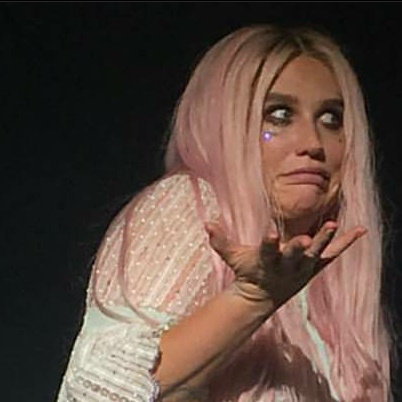There is an argument that free will doesn’t exist because there is an unbroken chain of causality we are riding on that dates back to the beginning of time. Meaning that every time you fart, scratch your nose, blink, or make lifechanging decisions there is a pre existing reason. These reasons might be anything from the sensory enviornment you were in the past minute, the hormone levels in your bloodstream at the time, hormones you were exposed to as a baby, or how you were parented growing up. No thought you have is really original and is more like a domino affect of neurons firing off in reaction to what you have experienced. What are your thoughts on this?
Yes but I need to define free will, I define it as the freedom to make a choice. We don’t control who our parents are, we don’t control what country we live in, we don’t control how others interact with us but we can control what choices we make.
We can chose option A-B-C…
If it looks like free will and quacks like free will, then it probably is free will.
Yes I do, because my own experience of existence suggests I have it. Could that all be an illusion? Sure. But believing I don’t have free will would pretty much deny the existence of my self, which, being myself, I’m not really capable of, nor would I want to do that.
You could define self differently. Buddhism has some fun takes on it.
I’m a compatiblist. I don’t think a deterministic universe precludes free will. Of course there are reasons for everything we do. If free will was only the freedom to make bad or random decisions, what’s the point? That’s a lot of free but not a lot will.
Nope, I don’t.
Doesn’t really matter, though. We certainly have the illusion of free will, we behave as if it exists, so it doesn’t actually matter in a practical sense.
It is fun to think about!
In my opinion humans are biological machines reacting to stimulus based on previous experience.
If we could theoretically perfectly map the brain and understand it, we could predict what a person would do in response to a specific stimulus.
At least that is how I have come to understand my existence.
Doesn’t mean I am off the hook for my poor decisions either. I still have to make the decision, even if theoretically we already knew what I would do.
Yeah, this is pretty much exactly how I feel about it. The universe is nothing but dead matter being pushed around by blind force, and any sense of agency is just an emergent phenomenon that exists as an illusion in the brain without having any actual bearing on reality. If you perfectly understood all of the forces and matter involved, you could perfectly predict what any given human (or anything system at all) would do.
That said, I also believe that it’s a completely useless idea when you’re trying to navigate through life, so I mostly just keep it in the back of my head like some half-forgotten piece of trivia and spend most of my time pretending to be in control like everyone else. Cheers!
Me too. The illusion of choice is what makes life interesting I suppose.
This is my favorite take on this topic. I also feel this way and its hard to get people to look at it this way I’ve noticed. People tend to loop back to “If theres no free will why do anything?” Or “If there is no free will why should murderers be punished?” Just because theres possibly no free will doesnt mean we should change the way we live our lives.
It’s a good question, though people tend to treat it as a thought-terminating cliché rather than exploring the implications. Why should murderers be punished, actually? Enacting punishment is an external incentive, a stimulus, supposedly structured to make the cost to the potential murderer higher than the benefit they hope to get by killing. Belief in punishment, therefore, is consistent with the non-free will position. But if there’s no free will, then why not instead try to “solve” murder, and not have murderers anymore, by discovering the root causes that drive people to murder, and mitigating them? We’d all be better off!
On the other hand, free will implies that the mechanism of punishment may or may not be punishing to the murderer. We don’t know what they feel in response to stimulus; they have free will! Like in the story of Br’er Rabbit, trying to determine a foolproof method of punishment that’s hateful to the murderer is an exercise in futility, since we can’t know their mind.
i have yet to see any evidence thatethere is anything that overcomes the deterministic nature of the universe. the rare bit of chaos we get from quantum mechanics is washed away by the law of large numbers.
By and large, I agree with you: I cannot see how free will fits into a deterministic universe. I still want to make some points for the case that there is some form of free will.
Think about scratching your nose right now, and decide whether or not to do it. It’s banal, but I can’t help being convinced by that simple act that I do have some form of choice. I can’t fathom how someone, even given a perfect model of every cell in my body, could predict whether or not I will scratch my nose within the next minute.
This brings up the second point: We don’t need to invoke quantum mechanics to get large-scale uncertainty. It’s enough to assume that our mind is a complex, chaotic system. In that case, minute changes in initial conditions or input stimuli can massively change the state of our mind only a short time later. This allows for our mind to be deterministic but functionally impossible to predict (if immeasurably small changes in conditions can cascade to large changes in outcome).
I seem to remember reading that what we interpret as free will is usually our mind justifying our actions after the fact, which would fit well with the “chaotic but deterministic” theory.
Ican’t fathom how someone, even given a perfect model of every cell in my body, could predict whether or not I will scratch my nose within the next minute.
so your argument is just personal incredulity?
The issue is not about choice. It is about control. Your next action is purely dependant on the current state of your brain and the stimuli around you. Where is the part that isn’t controlled by this system? How did you cause your brain to be exactly how it is right this moment? Was it not a cause of your previous brain state and the stimuli in the previous moment? How can you shown it’s not turtles all the way down?
The chaos comment is not really relevant. Chaos isn’t choice, I only brought it up to show that at the level of our brains and the interactions we have there isn’t anything random. A world rewound would produce the same outcome.
I think you’re missing my point: I opened by saying that I definitely believe the world is deterministic. I then went on to problematise the extremely unpredictable nature of the human mind. To the point where an immeasurable amount of historical input goes into determining what number I will say if you ask me to think of one.
Then, I used the argument of a chaotic system to reconcile the determinism of the universe with the apparent impossibility of predicting another persons next thought. A highly chaotic system can be deterministic but still remain functionally unpredictable.
Finally, I floated the idea that what we interpret as free will is in fact our mind justifying the outcome of a highly chaotic process after the fact. I seem to remember there was some research on split-brain patients regarding this.
The question is meaningless, the answer doesn’t affect reality, unless you propose an external mind that is controlling or at least influencing our decisions.
Even with the external mind it’d be irrelevant. As long as we have no way of knowing the future or being able to predict it, having or not having free will is observed in exactly the same way.
If there were some external mind, one might at least speculate about its reasons. Which would probably be futile since it would influence those considerations too. Hm. Yeah.
it all depends on how you define a person. Most likely, you think that a person’s consciousness is something inside the brain, and in this case, the “external” body really influences your decisions. But that’s not how it really works. The body is also a part of you, so everything that happens inside it, including “the hormone levels”, is a part of you. And your experience is a part of you too. It’s just that you can’t control it, but that doesn’t mean it’s not your decisions. Otherwise, we will come to the conclusion that muscle memory is also not a part of you, but some kind of external factor. In general, if you are interested in my answer: yes, we always make decisions on our own.
Muscle memory is stored in the brain, if you didn’t know that already.
Yes. I could talk about quantum indeterminacy as a scientific argument for it, but fundamentally, I believe in it because I want to[1]. I don’t like the idea of being a deterministic machine with a fate I can’t influence with active choices. It’s not provable either way with the current state of science, so I choose to believe my preferred option is the correct one.
[1] Of course such a statement presumes free will. I think I want to, anyway.
Okay, you can believe what you want, but I should clear something up: Quantum indeterminacy is not free will. It just means that there’s always residual randomness (measured by classical standards) at the smallest scales. Just going by the laws of physics there’s no obvious way for the brain to be more than a meat-based computer.
Fun thought exercise but functionally irrelevant. It still feels like I’m making decisions, so that’s close enough.
ya’ll some neo and oracle bustas up in here.
yes, as entities that are conscious of consciousness, we can steer ideas and actions with our will and intent.
This may or may not have universal implications, so stop trying to be all grandiose. we’re barely existing conscious ants that have imaginations. does that mean the universe won’t experience entropy? one of these things is not like the other.
I don’t believe one can make decisions outside of their web of being.
I think we have free agency within various external constraints. Which means we can try to find ways to circumvent external constraints, while also understanding that, as the fictional Ian Malcolm Smith put it, just because we can do a thing doesn’t mean we should do it.
The way I see it, the brain is essentially a neural network that builds a model of the world through experience. It then uses this model to make predictions. Its primary function is to maintain homeostasis within the body, reacting to chemical signals like hunger, emotions, or pain. Our volition stems from the brain’s effort to achieve this balance, using its world model as the foundation for action.








